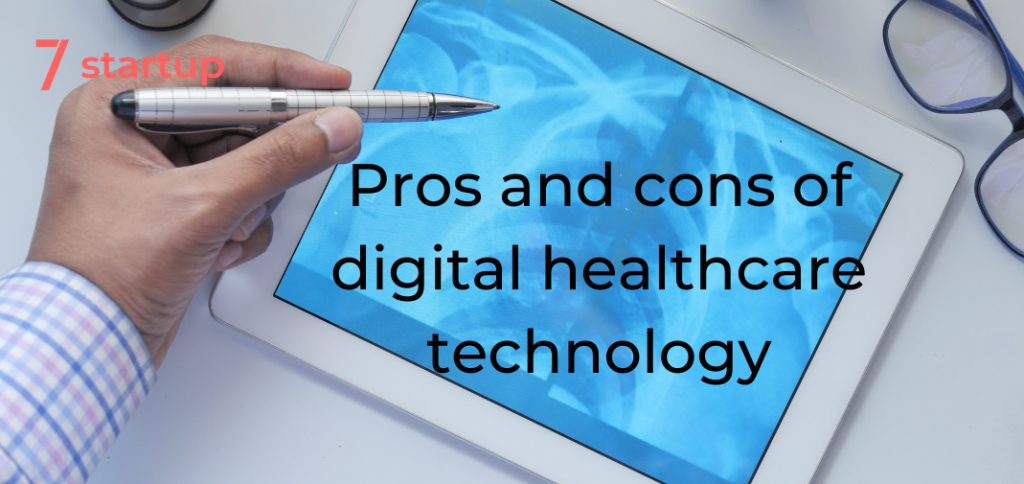Throughout the ongoing COVID-19 pandemic, digital and technological innovations, particularly in the healthcare field, have repeatedly continued to impress and improve peoples’ lives and wellbeing.
Using digital healthcare goods has become a way of life. For example, for many people it is more commonplace now to wear a fitness band instead of a traditional watch so that you can track multiple health-related data quickly and easily.
Every day, new products and healthcare services emerge to help us with the daily struggles of modern life.

What are Digital Health and eHealth?
To begin with, while Digital Health and eHealth may appear to be quite similar, they do actually have some differences.
Digital healthcare tools are technologies that provide services to consumers and patients to manage their own health. Simply put: digital health is the digitisation of the medical sector.
eHealth tools, on the other hand, are significantly more than simply web-based applications. For example, health records, telemedicine services, and so forth. This is a type of healthcare that makes use of information and communication technologies, and comprises drug telemarketing (ordering medicines online) as well as other medical products.
 Advantages of Digital Healthcare Technology
Advantages of Digital Healthcare Technology
There are a plethora of advantages of digital healthcare technology. Here are just a few:
- By digitising documents you don’t have to obtain test results, such as blood tests, in-person – no more waiting in queues for 5-minute appointments! Instead, you can access your test results and reports online.
- Your health information is securely preserved.
- Like a health fit band, you can obtain real-time access to all your health-related data.
- Digital health tools can also feature virtual reality (VR) and augmented reality (AR) technologies that make it easier to use.
- Telemedicine is a fantastic way to bridge the gap between patients and healthcare professionals.
- The quality of patient care is increased, whilst costs are also lowered and services made more convenient.
- The Internet of Things (IoT) helps lower expenses, improve the patient’s experience, and reduces both errors and waste.
- Cloud computing has numerous advantages in the healthcare field since it can provide high data availability, reliable backup, and disaster recovery.

Disadvantages of Digital Healthcare Technology
Though healthcare digitisation is a significant step forward, just like any other evolutionary transformation, it faces several hurdles.
- Security and privacy are concerns for consumers.
- The digital healthcare industry’s biggest difficulty is data processing because hospitals and similar platforms collect an enormous amount of delicate data.
- Cybersecurity, like with any other digital platform, is a major issue in digital healthcare.
- Users of digital services must be satisfied with them.
- Finally, not all healthcare professionals are willing to adopt digital health technologies and remain in favour of more traditional methods.

Conclusion
Digital health innovations dramatically improve the lives and wellbeing of many people, especially during the COVID pandemic. It is highly likely that digitisation has a bright future in the healthcare sector. However, there are multiple perils of digital healthcare technology that we should consider before adopting new, digitised routines, such as cybersecurity risks. Future medical technology must account for these problematic areas and strive to improve and refine itself.
Digitisation is on the rise with no sign of ever slowing down. Due to the nature of the industry, patients are at the forefront when it comes to the expansion into digital healthcare. As it currently stands, People are becoming more open to the implementation of digitisation in healthcare, however, there are still a large number people against it. Becoming more technology centric may make patients feel that their needs are not being met. It’s up to those within the industry to provide a humanistic touch to this ever growing industry.
You May Also Enjoy – Healthtech Industries Not Immune to Economic Hardship

Amit Khanna, 7startup Founder
Amit has 18 years of experience in the industry and an MBA. He supports entrepreneurs with every aspect of their business including concept and product development, investor presentations, and fundraising. Amit & 7startup assist startups in the pre due-diligence process and help connect them to our vast network of investors. Reach out to us today and see if we’re a fit!


 Advantages of Digital Healthcare Technology
Advantages of Digital Healthcare Technology

